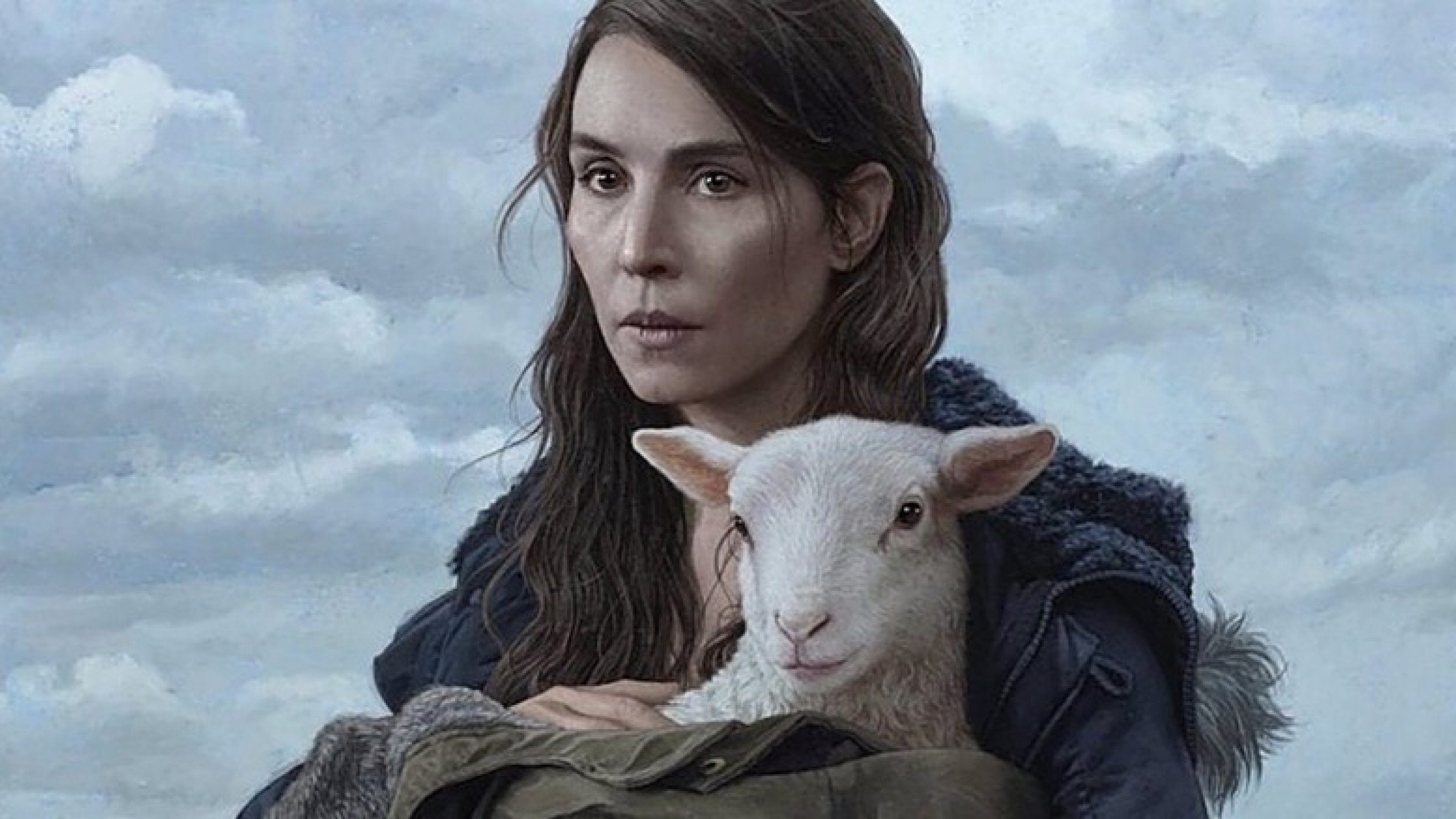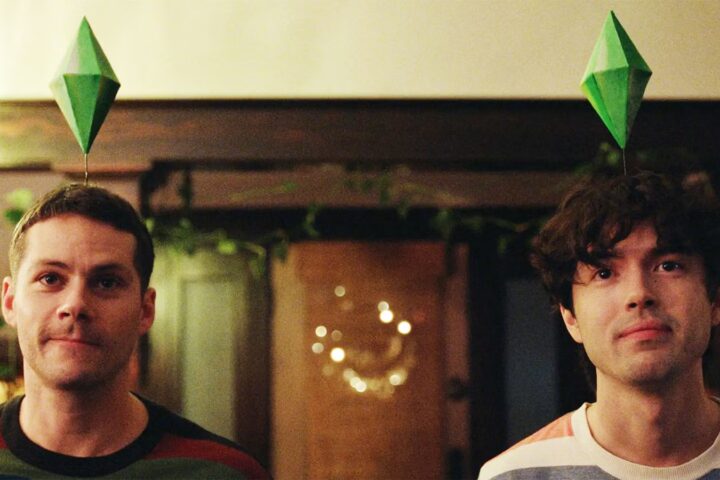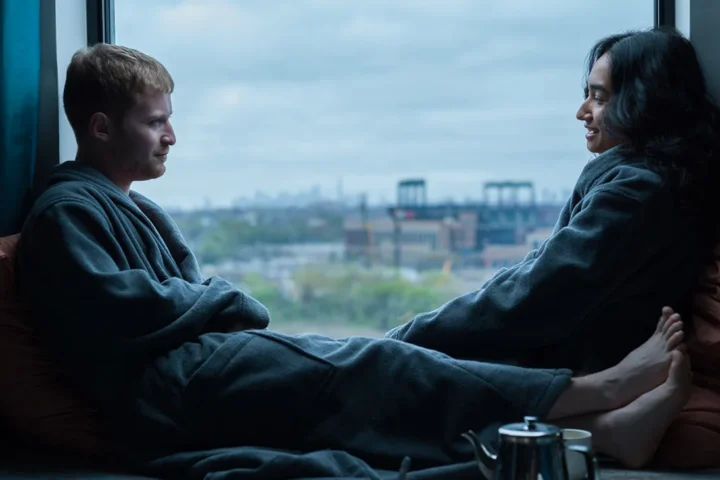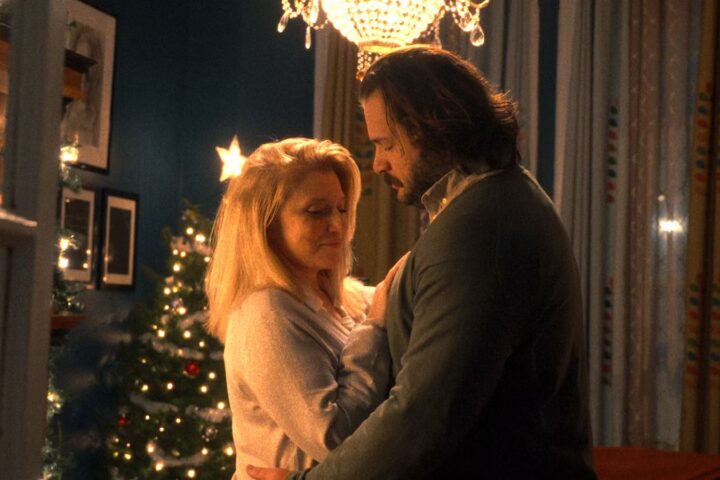The pastoral Icelandic countryside proves a superbly eerie milieu for Vladimir Johansson’s slow-burn arthouse thriller Lamb, one of the strangest, riskiest movies in recent memory. Ostensibly about loss, parenting and rebirth, it asks the audience to invest in an outrageous conceit in service of a darkly grim folk tale of sorts, featuring a standout Noomi Rapace as an unlikely surrogate mother to a most unexpected arrival.
Maria (Rapace) and Ingvar (Hilmir Snaer Gudnason) lead a quiet life as sheep farmers at the base of a mountain range, and the film’s masterful opening shot, moving slowly through fog and past animal herds to the seclusion of their rural home, suggests deep isolation, the sort required to either heal wounds or exacerbate anxieties (usually both). It’s beautiful, sure, yet austere in the unforgiving daylight.
Co-written by Johannson and Sjon, Lamb is told in three chapters, the first establishing the couple’s near-silent domestic and vocational routines. Their companionship involves little intellectual or physical connection but plenty of teamwork tending to both the land and their substantial flock (beautifully photographed by DP Eli Arenson). Yet within this hushed dynamic Maria, pulling newborn lambs from wombs and navigating a tractor across bucolic fields, exerts convicted tenacity.
Spoilers below.
The picture takes a first act turn after Maria and Ingvar inexplicably covet a newborn lamb from its mother, incredulously deciding to adopt the babe as an infant daughter. In this development Johannson requests a whopping suspension of disbelief and suggests the picture is entering allegory.
Are they imagining a human baby with a lamb’s visage? Do they see what we see? With no objective, third-party confirmation of reality, their behavior courts frustration. Why won’t they acknowledge the absurdity of their ruse? In a stunningly matter-of-fact reveal, new daughter “Ada” appears to have been born half human and half sheep, possessing the torso, legs and single arm of a human girl. She stands and walks upright. Come again?
The arrival of Ingvar’s gruff, former pop star brother, Petur (Bjorn Hlynur Haraldsson), invites complications, his bewilderment functioning as surrogate for ours while confirming that the film’s defiantly strange events are taking place in objective reality. Like us, Peter is given no explanation for either Ada’s biology or domestication. Despite his brother’s stealth objections, Ingvar assures him the family is blissfully happy.
Also objecting is the forlorn mother sheep, pining for her lost newborn outside the window where, naturally, Ada sleeps in a crib. Her maternal loss generates considerable and surprising empathy. Additional pieces of this strange puzzle are gradually revealed, including the couple’s former loss of a daughter—also named Ada – and allusions to a former romantic indiscretion.
The intensity of the film’s central cathexis—Maria and Ingvar’s desperate reinvention of their family under patently absurd and cruel conditions—both fascinates and troubles. Throughout this austere film, there are questions of emotional denial, of course, but larger ones of nature and nurture; a primal need for motherhood; the use of children (or pets) to assuage emptiness; and the elemental connection between man and animal. There is also a price to be paid for what is, essentially, kidnapping.
To Johannson’s credit, the potential absurdity of the premise is rendered (almost) believable by his firm grasp of tone—he is serious as all get-out about his subject matter, and successfully endeavors to ground Maria and Ingvar’s actions in an understandable psychology. He has also directed note-perfect performances from his leads, particularly the adventurous Rapace, one of the best actresses going and as focused and convicted as they come, delivering a modulated, shattering intensity.
In a perfect world, Arenson’s striking imagery would be in awards contention for expertly depicting serenity and unease in the crisp, cold light of day, a terror rising in beauty’s midst. This juxtaposition—as when Petur drags Ada across the peaceful morning countryside, one hand in hers and the other on a shotgun’s trigger—establishes a rigorous visual vernacular.
Lamb ends on a perfect final shot, a howl into the void for the sins of the fathers, parental transgressions that come at a steep price.
3 stars.



